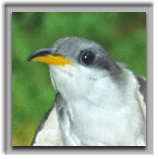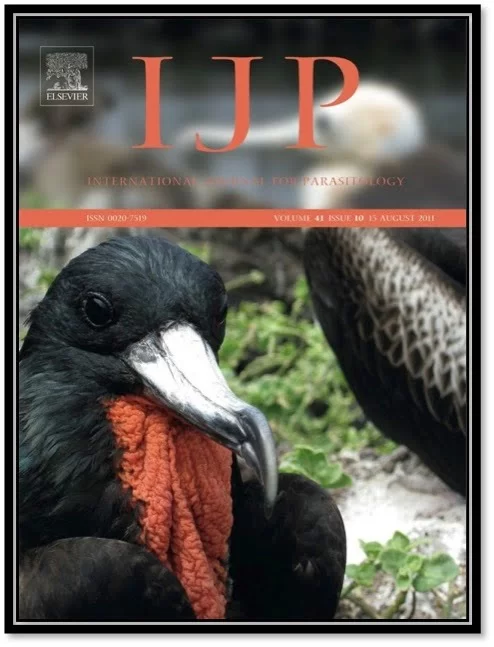Parasitism
The reproductive strategies of parasites – from malaria to tapeworms to cowbirds – have evolved to take advantage of hosts. Because of the strong selection pressures on both parasites and their hosts, we see fascinating interactions at a variety of scales – molecular, behavioral, ecological, and macro-evolutionary.
Much of my current work is with the evolution of the major histocompatibility complex, a group of genes/proteins involved in presenting pathogen peptides to the host immune system. My prior research in host-parasite interactions was more focused on brood parasites, amazing creatures that are able to avoid the work and costs of parental care by manipulating others into doing that work for them. Some such species reproduce only parasitically (e.g., cowbirds), whereas others are facultative brood parasites that combine parasitic reproduction with “honest” episodes of parental care.


[To see an old archive of a cowbird nestling pushing a host nestling out of the nest, look here.]
Selected Papers:
Dearborn DC, Warren S, Hailer F. 2022. Meta-analysis of major histocompatibility complex (MHC) class IIA reveals polymorphism and positive selection in many vertebrate species. Molecular Ecology 31:6390-6406.
Tonelli B, Dearborn DC. 2019. An individual-based model for the dispersal of Ixodes scapularis by ovenbirds and wood thrushes during fall migration. Ticks and Tick-borne Diseases 10:1096-1104.
Dearborn DC, Gager AB, McArthur AG, Gilmour ME, Mandzhukova E, Mauck RA. 2016. Gene duplication and divergence produce diverse MHC genotypes without disassortative mating. Molecular Ecology 25:4355-4367.
Levin II, Valkiūnas G, Santiago-Alarcon D, Cruz LL, Iezhova TA, O’Brien SL, Hailer F, Dearborn DC, Schreiber EA, Fleischer RC, Ricklefs RE, Parker PG. 2011. Hippoboscid-transmitted Haemoproteus infecting Galapagos Pelecaniform birds: Evidence from mitochondrial DNA and morphological description of blood stages of H. iwa. International Journal for Parasitology 41:1019-1027, with cover photo. PDF
Dearborn DC, MacDade LS, Robinson S, Fink ADD, Fink ML. 2009. Offspring development mode and the evolution of brood parasitism. Behavioral Ecology 20:517-524. PDF
Gager AB, Loiza JR, Dearborn DC, Bermingham E. 2008. Do mosquitoes filter the access of Plasmodium cytochrome b lineages to an avian host? Molecular Ecology 17:2552-2561. PDF
Hauber ME and Dearborn DC. 2003. Parentage without parental care: what to look for in genetic studies of obligate brood-parasitic mating systems. Auk [Perspectives in Ornithology] 120:1-13. PDF
Dearborn DC. 1998. Begging behavior and food acquisition by brown-headed cowbird nestlings. Behavioral Ecology and Sociobiology 43:259-270. PDF